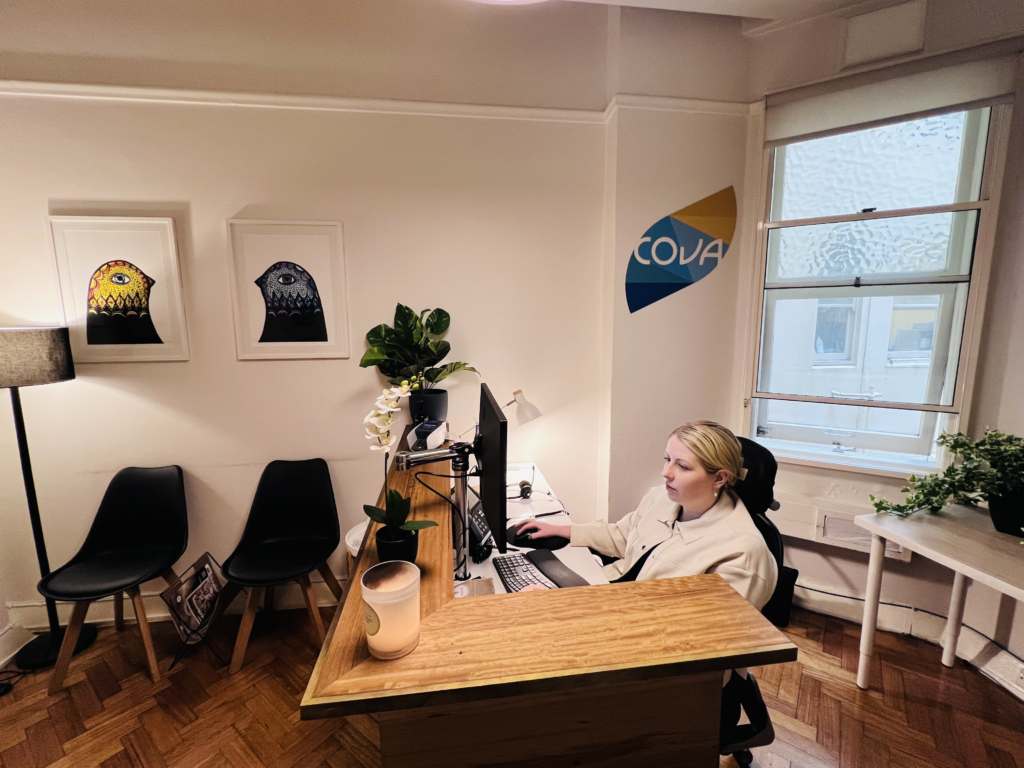Menu

If you’re on the lookout for a psychologist in Melbourne to assist with depression, this page will guide you in selecting one, define the various forms of depression they can address, and provide insights into initiating therapy.


Major depressive disorder is a mood disorder and complex mental health condition. Classified within the Diagnostic and Statistical Manual of Mental Disorders (DSM-5), depression is more significant than the experience of transient sadness. Depression is a clinically recognised state characterised by consistent and ongoing feelings of sadness, despondency, and disinterest in engaging with routine or pleasurable activities. The impact of living with depression are significant, often taking a toll on relationships, workplace productivity, and one’s general well-being.
In Australia specifically, depression stands out as an alarming concern. Statistics show that 10% percent visit their GP for assistance with this mood disorder. Recognising depression early can be important for successful intervention and the healing processes—a process made possible through awareness of how depression presents emotionally as well as physiologically.
Depression can present itself differently depending on the individual. The range of depression diagnoses include:
Major Depressive Disorder
Persistent Depressive Disorder
Seasonal Affective Disorder
Postpartum Depression
Recognising each subtype of depression for its distinct features can be important to guide treatment and ensure that personalised therapeutic strategies are used.
Depression manifests in various forms, each with its own set of symptoms and therapeutic approaches. Classified by the DSM-5, these include several types such as major depressive disorder, persistent depressive disorder (also known as dysthymia), seasonal affective disorder due to changes in sunlight exposure, and postpartum depression experienced after childbirth. Health professionals use this categorisation to assist in tailoring treatment accordingly.
Major depressive disorder (MDD) or “major depression” is a diagnosable condition in which a person feels low in mood and/or a lack of interest or pleasure in their daily activities. It is a prevalent mental health condition classified as a mood disorder. Alongside this, people may experience a variety of other symptoms like:
Sleeping more or less than usual.
Being noticeably agitated or really slowed in their actions.
Feeling fatigued.
Feeling worthless or guilty.
Being less able to focus or more indecisive.
Having an increase / decrease in their appetite, or gaining / losing weight.
Decreased libido.
Thoughts about death or suicide.
In addition to these symptoms, individuals may also experience physical symptoms such as fatigue and changes in appetite and sleep patterns, which can significantly impact daily functioning.
The process for diagnosing depressive disorders involves thorough psychological assessment typically requiring multiple sessions with a mental health professional (such as a psychologist).
Dysthymia, or persistent depressive disorder, manifests as a continuous and prolonged period of depression. Over the span of several years, an individual may experience a steady state of low mood. While the symptoms associated with this condition are not as acute as those seen in major depressive disorder, dysthymia is nonetheless recognised as a form of severe depression. The chronic nature of dysthymia means this condition can significantly impact overall quality of life.
Dysthymia often involves ongoing sadness and disinterest in pleasurable activities. This consistently depressed mood can sometimes be “normalised” because the symptoms are not always as noticeable or extreme as MDD. Working with a psychologist can be an important step in clarifying whether dysthymia is something you are experiencing.
Seasonal affective disorder (SAD) is a form of depression with a recurring seasonal trend, usually emerging in the winter when there’s less sunlight. This reduction in sunlight can disrupt mood regulation and cause symptoms that are common to other types of depression, including feelings of hopelessness, low energy levels, and altered sleep patterns.
Acknowledging that SAD is influenced by seasons is essential for addressing its symptoms effectively and accessing the most appropriate treatment options.
New parents may suffer from postpartum depression, which can present as severe fatigue, profound sadness, and difficulties feeling connected to their child. It is more common in women, especially during the perinatal period.


Depression can impact both the mind and body. The physical manifestations associated with depressive disorders can include persistent fatigue, fluctuating appetite levels, and irregular sleep habits. Individuals battling depression may notice themselves sleeping too little or excessively, feel continuously drained energetically or undergo considerable weight fluctuations. These tangible shifts can adversely affect one’s ability to stick to a normal daily schedule.
The emotional challenges of depression may include pervasive feelings such as self-doubt, overwhelming guilt feelings, or a lowered sense of confidence or self-esteem. Depression has the potential to impair concentration abilities resulting in periods of indecision and inaction.
There are a range of effective psychological treatments (or therapies) for depression. Some people also find antidepressant medication an important part of their treatment, and we encourage you to explore that with your doctor. As we a psychology clinic, this page will focus on the evidence-based psychological treatments that are available in Melbourne.
Cognitive-behavioural therapy (CBT), Schema Therapy, and Mindfulness-Based Cognitive Therapy (MBCT) have all shown significant effectiveness in managing depressive symptoms and preventing relapse. These therapies are evidence-based and tailored to address the unique needs of each individual.
A mental health professional such a psychologist can provide a diagnoses and develop personalised treatment plans that may include a combination of depression psychological treatments. Addressing both emotional and physical aspects of depression, these treatments help individuals gain control of their symptoms and improve well-being.
Cognitive-behavioural therapy (CBT) has a significant body of research behind it, demonstrating it’s effectiveness in treating depression. By encouraging reconnection with pleasurable activities and learning how to manage negative thoughts which fuel depressive symptoms, CBT equips individuals with strategies to reshape their thoughts, foster coping skills, and elevate mood.
By targeting entrenched cognitive and emotional patterns, Schema Therapy has been demonstrated to be effective in treating chronic depression. It works by pinpointing and altering established schemas – or fundamental beliefs regarding oneself and the surrounding environment – that are at the root of ongoing depressive symptoms. By tackling the “root cause” of depressive symptoms, individuals can reduce the likelihood of a relapse over time.
Integrating Cognitive Therapy techniques with mindfulness exercises, Mindfulness-Based Cognitive Therapy (MBCT) provides an integrated treatment approach for depression. Studies indicate that MBCT significantly decreases the intensity of depressive symptoms and reduces relapse, especially in those who experience severe depression.
By incorporating mindfulness practices into its approach, MBCT enables individuals to remain focused on the present moment, improving emotion regulation through better management of unhelpful thoughts.
At Cova Psychology, we aim to provide high quality and evidence-based treatments which are customised to our clients. Our Melbourne psychologists may incorporate a diverse range of therapeutic approaches including Cognitive Behavioural Therapy (CBT), Schema Therapy, and mindfulness techniques. Clients who experience both depression, anxiety, and/or trauma symptoms may also benefit from our other therapies such as Eye Movement Desensitisation Reprocessing (EMDR).
At Cova Psychology, we provide an extensive selection of therapies aimed at enhancing mental health and treating depression through psychological therapy. The modalities offered encompass:
Eye Movement Desensitization and Reprocessing (EMDR)
Cognitive Behavioural Therapy (CBT)
Mindfulness-Based Therapies
Acceptance and Commitment Therapy (ACT)
Dialectical Behaviour Therapy (DBT)
Schema Therapy
These diverse therapeutic approaches are designed to target distinct elements of depression, ensuring a comprehensive method of treatment.
Scheduling a session at Cova Psychology is a convenient, smooth, and supportive process. Our friendly reception team will talk with you about your goals for therapy and match you to a Melbourne psychologist who is suited to your needs.
Our reception team can also guide you through the process of attaining a mental health care plan along with a referral from either a general practitioner or psychiatrist which entitles you to receive Medicare rebates on as many as ten therapy sessions within any given calendar year.
We provide therapy options for telehealth as well as in-person sessions. The advantage of telehealth services lies in its convenience, allowing you to access psychological assistance from your home, no matter where you reside (we service Australia-wide)
Depression can have a profound effect on every aspect of an individual’s life, including their relationships and social life, work effectiveness, and overall sense of well-being. It is important to access support from health professionals in order to manage and treat depression effectively. Psychologists are equipped to provide an accurate diagnosis as well as tailor a comprehensive treatment plan that tackles the psychological and physical dimensions of the condition. Without appropriate professional intervention, depression may escalate and become more distressing over time.
Stressful life events or grief and can be initial triggers to depressive states. Early detection of depressive symptoms and prompt action seeking assistance can be important to prevent mood deterioration. A variety of treatment options exist through mental health specialists, which include psychological therapies (under the care of a psychologist), and/or antidepressant medication (under the care of a doctor).
Managing depression effectively often requires a combination of self-care and professional treatment. Being proactive about protecting your mental health by sharing personal struggles with a professional can empower you to get on top of depression. Incorporating coping strategies into one’s daily life is an excellent way to complement the benefits received from professional care.
Adjusting lifestyle factors can play a significant role in managing depressive symptoms. Ensuring your food intake is regular and incorporating healthy choices can protect and enhance your mood.
Research has also demonstrated that exercise can enhance mood and protect against the symptoms of depression. Creating and maintaining a regular daily activity schedule can provide the organisation and consistency necessary for increasing physical activity as part of managing depression effectively.
Establishing or leaning on relationships with loved ones and support groups can also play a role in managing depression. Depression is often linked to feelings of aloneness and isolation, and also a sense that “I am the only one who feels this way.” By reaching out to our support network (or expanding it), we can often find a sense of understanding and connection which can improve our mood.
Participation in support groups can reduce feelings of loneliness, allowing individuals to exchange experiences and coping techniques with others facing similar challenges.
During your first psychology session, your psychologist is like to explore when you first noticed your depression symptoms, how long they’ve persisted, and the extent to which they affect your everyday activities. You may also discuss your past medical and psychiatric history, as well as if there’s a history of mental health issues within your family.
Often the assessment will continue into the second session and typically experiences from your childhood are discussed as part of this process. This comprehensive assessment helps to clarify diagnosis (particularly important if there are multiple mental health issues present), and allows for creating a tailored treatment approach that targets what you are uniquely experiencing.
Identifying the various types of depressive disorder, acknowledging its signs, and pursuing psychological care are often essential steps in treating depression. A range of effective treatments are available in Melbourne and include Cognitive-Behavioural Therapy, Schema Therapy, and Mindfulness-Based Cognitive Therapy (CBT).
Cova Psychology in Melbourne provides access to a range of therapeutic strategies as part of customised treatment plans either through telehealth consultations or direct face-to-face sessions. We work with major depressive disorder, persistent depressive disorder (also known as dysthymia), seasonal affective disorder or postpartum depression. We encourage healing by integrating our evidence-based interventions with coping strategies and lifestyle changes that improve the mood and well-being of our clients.
Psychological treatment is the most effective form of intervention for depression and research suggests that antidepressant medication is only recommended in moderate-severe cases, in combination with therapy.
There are a number of therapies that have been shown to be effective for treating depression. Cognitive-Behavioural Therapy (CBT) has a particularly strong evidence base and is widely used to treat depression around the world. CBT involves helping you re-engage with your life by doing activities which give you a sense of enjoyment or achievement. It can involve working on lifestyle factors such as diet, exercise, sleep, socialising, etc. In addition, CBT involves focussing on the person’s negative thinking in order to create more balanced, realistic thought patterns.
Beyond CBT, Schema Therapy and Mindfulness-Based Cognitive Therapy (MBCT) are also effective treatments for depression, particularly when the depressive symptoms are long-lasting or re-occur after period of remission. Schema Therapy helps identify and change deeply ingrained patterns, or “schemas,” that contribute to chronic depression. It combines elements of cognitive, behavioral, and experiential therapies to address these core issues. MBCT integrates cognitive therapy techniques with mindfulness practices. It teaches individuals to become more aware of their thoughts and feelings, fostering a non-judgmental attitude towards them. This approach helps prevent the recurrence of depressive episodes by breaking the cycle of negative thinking. At Cova Psychology, we provide these treatments to support lasting recovery.
At the onset of therapy, you don’t need to know which therapy to start with. Your psychologist will conduct a thorough assessment and you will collaboratively develop a treatment plan which will contain one or more of the therapies listed above.
If this page was helpful, our comprehensive blog post about depression treatment might also be of interest to you.
To summarise, in Melbourne, a variety of effective psychological depression treatment options are available including cognitive behavioural therapy (CBT) and other therapies such as Schema Therapy, ACT, and MBCT. Successful depression treatment often lies in engaging with an experienced psychologist who can tailor your treatment to your needs for an integrative approach. You are also able to involve your general practitioner (GP) and/or psychiatrist in your depression treatment and care.
At Cova Psychology, comprehensive support for a wide range of mental health issues is provided by our Melbourne psychologists through an array of evidence-based therapies such as EMDR, CBT, mindfulness-based therapies, ACT, DBT and Schema Therapy.
These varied therapeutic methods are tailored to meet the individual preferences and needs of their clients.
At Cova Psychology, comprehensive support for a wide range of mental health issues is provided by our Melbourne psychologists through an array of evidence-based therapies such as EMDR, CBT, mindfulness-based therapies, ACT, DBT and Schema Therapy.
These varied therapeutic methods are tailored to meet the individual preferences and needs of their clients.
By accessing a referral and a mental health care plan from either a psychiatrist or GP you are eligible to receive Medicare rebates for up to 10 therapy sessions each calendar year.
To schedule a session at Cova Psychology, it is necessary to speak with the reception staff. They will converse about your issues related to mental health, preferences for treatment methods, and when you are available for appointments.
Therapy sessions at Cova Psychology typically last for 50 minutes. This duration allows for a focused and effective therapeutic experience.


If you or a loved one is experiencing depression or you are having a response to a life situation/loss that feels understandable but is still hard to manage, our Melbourne psychologists and trauma therapists can help. Get in touch with our friendly reception team to book an appointment. Contact us by:
We are available for both face to face and telehealth sessions.
Let’s discuss your needs and match you with the right Melbourne psychologist.



Don't let your struggles hold you back. Call us.
Let’s discuss your needs and match you with the right Melbourne psychologist.
Let’s discuss your needs and match you with the right Melbourne psychologist



Acknowledgement of Country
Cova Psychology acknowledges the Traditional Owners of the land where our Melbourne CBD practice is located—the Wurundjeri Woi-wurrung and Bunurong/Boon Wurrung peoples of the Kulin Nation. We pay respect to their Elders, past and present, as well as the Elders of other Aboriginal communities in Melbourne and beyond.






We would like to acknowledge the Traditional Owners of the land on which the practice is located. We pay our respects to their Elders, past and present, and the Aboriginal Elders of other communities who may be here today.























